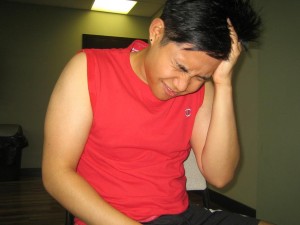Cases of headaches that are accompanied by pain in the head, neck or scalp affect millions of individuals all over the world. When a doctor is consulted, the headache is classified based on the location, type and length of pain and associated symptoms. Certain types of headaches including migraine and tension headaches can occur as a response to triggers such as caffeine. It is important to note that caffeine can also help manage these types of headache. Cluster headaches do not have any connection with caffeine. If you want to learn more about the management of this condition, read here.
What is a cluster headache?
A cluster headache is capable of causing severe and abrupt pain that can last for 15 minutes up to 3 hours. A distinctive feature of a cluster headache is an attack that is recurrent, typically occurring at the same time each day.
Cluster headaches can affect the individual up to a week, a month or even up to a year and then stop which allows the individual a period free from pain for a month or longer. Based on studies conducted, the intake of alcohol is the only known dietary trigger for cluster headaches. If an individual is suffering from cluster headaches, he/she can drink beverages that contain caffeine without triggering an attack.

Caffeine as a trigger for cluster headaches
Always bear in mind that caffeine is a stimulant. The chemical is naturally present in coffee, chocolate and tea. Many manufacturers add caffeine to soft drinks and some medications. If an individual drinks large amounts of caffeine, he/she might suffer symptoms of caffeine withdrawal once the level of caffeine drops. The usual symptoms include irritability, anxiety, lightheadedness, rapid breathing, headache, nausea and vomiting. Drinking large amounts of caffeine can also instigate a migraine or tension headache.
Using caffeine as a form of treatment
A headache caused by caffeine withdrawal is considered as the easiest to manage. It typically resolves once the individual consumes caffeine. The caffeine works by increasing the absorption of analgesics such as acetaminophen and aspirin which boosts their ability to treat migraine and tension headaches. Due to this, some pain medications contain caffeine. Individuals who are using analgesics alone should take 40% more to achieve relief than those who use analgesics combined with caffeine.
Treatment for cluster headaches
Until today, there is no cure for cluster headaches but there are some medications that can help minimize the severity of the pain and frequency of the attacks. Since the harsh pain occurs abruptly, medications that are taken orally could not provide full relief.
The common form of treatment for cluster headaches includes the subcutaneous administration of sumatriptan. This is a medication that acts on serotonin which is a neurotransmitter in the brain to narrow down the blood vessels to reduce the pain. Additionally, oxygen can also help relieve cluster headaches. Remember that consuming caffeinated beverages will not minimize the pain caused by cluster headaches.
